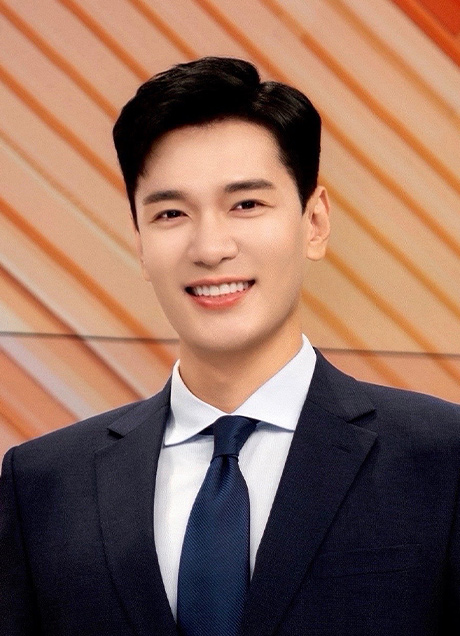SCHEDULE
*Speakers and program schedule are subject to change.
Opening Ceremony
SDF2025 Welcome Reception
SDF2025 Opening Ceremony
Title: Gat - “Nam-Heuk-Rip”
Description:
SDF2025 opens with Nam-Heuk-Rip, a segment from Gat , an original modern ballet by Yoon Byul Ballet Company.
Symbolizing the identity and dignity of Joseon-era scholars, the gat (traditional Korean hat) is boldly deconstructed and reimagined through the language of contemporary ballet. From a “zero base,” the piece reconstructs tradition to create an entirely new aesthetic value. In particular, Nam-Heuk-Rip, performed by a powerful ensemble of male dancers, gives striking visual form to four philosophies that define innovation in the “Zero Era.”
Its dynamic energy represents the driving force that breaks away from the old and opens the new; its graceful lines embody human-centered harmony and coexistence; the scholar’s integrity stands for unchanging principles and ethics; and meot―the uniquely Korean sense of refined style―symbolizes innovation grounded in strength, flexibility, and dignity.
Recently, the gat has emerged as an iconic cultural symbol, extending Korean tradition into global pop culture―from the international sensation K-Pop Demon Hunters to K-pop stages worldwide. With explosive energy, refined choreography, and bold aesthetics, it has captivated audiences across the globe. In this spirit, the ballet Gat’s Nam-Heuk-Rip embodies a contemporary sensibility, merging Korean tradition with modern global expression to create a new theatrical language.
Through movements that are both dynamic and disciplined, Nam-Heuk-Rip powerfully expresses the will to redesign the world in the Zero Era, leaving audiences deeply moved and inspired.
Title : AI for Turbulent Times
This talk examines how AI is reshaping the world―creating uncertainty in geopolitics, disrupting economies, and challenging institutions. It explores how Korea and the global economy should rethink priorities, design resilient Institutions and strategies for the age of AI, and seize opportunities to thrive in this era of rapid change. The talk offers practical insights on how the United States, China, Korea and emerging nations should cope with the age of AI and keys for remaining competitive in the coming economy.
*This session was pre-recorded remotely as previously announced.
*The video will be uploaded in November with subtitles, starting from the highlights.
PART 01
The Next Frontier of AI with Dr. Fei Fei Li
The Next Frontier of AI with Dr. Fei Fei Li
*This session was pre-recorded remotely as previously announced.
*The video will be uploaded in November with subtitles, starting from the highlights.
Special Address: “The Path Forward for AI in Korea”
Special Address
The Future Lee Sedol Saw First: Challenges and Insights in the AI Era
In 2016, the historic match between 9-dan Go master Lee Sedol and the artificial intelligence program AlphaGo shocked the world, marking a turning point that forced humanity to reflect on the relationship between humans and AI―and on our shared future. Nearly a decade later, the world of Go has undergone a profound transformation. Players have embraced AI as a training partner, traditional strategies have been overturned, and entirely new styles of play have emerged. While the democratization of knowledge has advanced, long-held hierarchies have been challenged, and young players have rapidly risen to prominence, reshaping the competitive landscape. In this talk, Lee Sedol―who personally experienced “the future that arrived early”―will share his insights on how to turn crisis into opportunity and why embracing challenge over fear is essential for living meaningfully in the age of artificial intelligence.
Break 1
Coffee Break / Lee Sedol Book Signing Event
PART 02
Industrializing Embodied Intelligence: Bridging the Last Mile of Smart Manufacturing
Wang He, Founder and CTO of Galbot, who frames the final stage of smart manufacturing as the “industrialization of embodied intelligence,” emphasizes three essential elements. Unmatched Generalizability: Powered by the world's largest embodied AI dataset, Galbot's robots achieve best-in-class adaptability, moving seamlessly from simulation to real-world deployment. Solving the Last-Mile Challenges in Smart Manufacturing: In complex factories, Galbot automates tasks such as automobile inspection, SPS sorting, and industrial bin handling with superior decision-making and motion control. Widely Deployed Autonomy and Proven Reliability: Already deployed in warehouses and retail stores, Galbot delivers fully autonomous service, with continuous and stable operation proven for over six months.
From Superintelligent Video AI to Physical AI
What lies ahead for superintelligent AI and physical AI? LEE Jae-sung, CEO of TwelveLabs and a pioneer in video-native AI, explains, “We don’t start by reading when we learn about the world―we start by seeing. Vision is everyone’s first language. Think of your earliest memory-it wasn’t made of symbols or words, but of images. The key to building AI that truly understands the world-the key to Physical AI-lies in video.” TwelveLabs, which has developed the world’s most advanced multimodal, video-native AI that sees and understands like humans do, is now creating systems that transcend the limits of space and time-AI that can comprehend and reason over video data spanning not just hours but years, and interpret countless camera angles and diverse sources simultaneously. This talk explores how the era of superintelligent video AI and physical AI is emerging beyond the overheated race of large language models (LLMs), and what this transformation means for developers, businesses, and society as we prepare for a world where AI perceives and interacts with physical reality more deeply than ever before.
Rethinking Infrastructure in the Age of Sovereign AI
Artificial intelligence has evolved beyond being a technology for specific industries-it has become a core infrastructure that determines national competitiveness and drives social innovation. Yet beneath this progress lie structural challenges such as excessive dependence on a few nations and corporations, widening technological gaps, and instability in global supply chains. In this talk, Dr. PARK Sunghyun examines the current realities and limitations of the AI industry, analyzing the challenges faced by both Korea and the global AI ecosystem. He introduces the concept of “Sovereign AI” not merely as technological localization, but as a strategic framework that enables nations and enterprises to make autonomous technological choices and strengthen their negotiation power. Dr. PARK emphasizes the importance of collaboration, supply chain diversification, and global partnerships in achieving this goal, while exploring how startups and the private sector can contribute to securing national technological sovereignty. Finally, he discusses the direction of innovation required in the “Zero Era” and invites the audience to explore practical pathways toward a more independent and sustainable AI future.
Panel talk
Leaders from two of Korea’s most prominent AI startups―LEE Jae-sung, CEO of TwelveLabs, a global pioneer in AI video technology, and PARK Sung-hyun, CEO of Rebellions, a leader in AI semiconductors―will share their insights on Sovereign AI and discuss what key challenges and priorities we must focus on to strengthen Korea’s AI technology sovereignty and global competitiveness.
*Please send in your questions for Wang He, Founder and CTO of Galbot, LEE Jae-sung of TwelveLabs and PARK Sunghyun of Rebellions.
Lunch Time
PART 03
Opening Performance
Title: Gat - “Nam-Heuk-Rip”
Description:
SDF2025 opens with Nam-Heuk-Rip, a segment from Gat, an original modern ballet by Yoon Byul Ballet Company.
Symbolizing the identity and dignity of Joseon-era scholars, the gat (traditional Korean hat) is boldly deconstructed and reimagined through the language of contemporary ballet. From a “zero base,” the piece reconstructs tradition to create an entirely new aesthetic value. In particular, Nam-Heuk-Rip, performed by a powerful ensemble of male dancers, gives striking visual form to four philosophies that define innovation in the “Zero Era.”
Its dynamic energy represents the driving force that breaks away from the old and opens the new; its graceful lines embody human-centered harmony and coexistence; the scholar’s integrity stands for unchanging principles and ethics; and meot―the uniquely Korean sense of refined style―symbolizes innovation grounded in strength, flexibility, and dignity.
Recently, the gat has emerged as an iconic cultural symbol, extending Korean tradition into global pop culture―from the international sensation K-Pop Demon Hunters to K-pop stages worldwide. With explosive energy, refined choreography, and bold aesthetics, it has captivated audiences across the globe. In this spirit, the ballet Gat’s Nam-Heuk-Rip embodies a contemporary sensibility, merging Korean tradition with modern global expression to create a new theatrical language.
Through movements that are both dynamic and disciplined, Nam-Heuk-Rip powerfully expresses the will to redesign the world in the Zero Era, leaving audiences deeply moved and inspired.
The Expansion of Robotics for Humanity
In the midst of sweeping technological innovation, robotics is no longer just a “robot product.” It has evolved into an intelligent lifestyle technology that combines hardware, software, and services, developing with a focus on human life. This talk will explore how robotics can enhance practicality and accessibility by focusing on functions that are truly essential to people, and how mass production and reasonable pricing can enable more people to benefit from robotics. Furthermore, it will examine the potential of robotics as a technology that contributes to solving social challenges, transforming individual lives, and guiding society toward a better future.
AI, the Fourth Wave… “Like Water and Electricity”
The performance of large-scale AI models continues to evolve rapidly. However, what matters even more is how these models are integrated into real products, delivered as services, and translated into tangible value for users. The year 2025 is expected to mark the beginning of a new era in which AI is no longer confined to specific industries or specialized domains, but permeates all people and sectors like water and electricity. This talk will explore how AI will transform everyday life and industries as a whole, and what kind of future awaits us amidst these sweeping changes.
 Fragmentation of the World Order and the Drawing of New Boundaries
Fragmentation of the World Order and the Drawing of New Boundaries
Since the 2010s, the world order has been rapidly fragmenting and, in many cases, becoming increasingly fractured. This trend has been driven by strong centrifugal forces, including a backlash against hyper-globalization, supply chain disruptions during the COVID-19 pandemic, U.S.-China strategic competition centered on advanced industries, and the rise of nationalism and protectionism. This lecture systematically analyzes the fragmentation of the world order and identifies the factors that have begun to promote the emergence of “new boundary-making” as a reaction to it, offering insights into the future direction of global order. It views the fragmentation of the world order as being reinforced through the interplay between the backlash against hyper-globalization, rising geopolitical risks, and U.S.-China advanced technology competition. At the same time, the lecture examines how major powers are integrating geopolitical risks into national strategies, pursuing reconnection strategies, and in the process, creating new boundaries for cooperation and competition among states.
 Government Competitiveness in Korea: What Are the Issues?
Government Competitiveness in Korea: What Are the Issues?
Since the 1960s, beginning with the "Miracle on the Han River," the South Korean government’s policy implementation capacity reached world-class levels during the country’s economic development period. However, as society has become more complex following democratization, the role of government has become even more critical, and the Korean bureaucracy has begun to show its limitations. If reforms are not undertaken now, national crises may loom in the future. Focusing on the capabilities required of bureaucrats to maintain government competitiveness, this lecture analyzes the current state of the South Korean government across six areas: policy implementation, organizational management, legal expertise, ethics, new technologies (AI), and political communication, and proposes potential solutions. Due to accumulated inefficiencies in the bureaucracy, many public officials expend excessive energy on unproductive tasks, while low salaries and rigid organizational culture hinder the entry of talented young professionals, posing threats to government effectiveness. This talk explores ways to overcome these challenges and suggests the innovations needed before it is too late.
Delving In, Returning to Humanity
Literature expands solidarity and empathy that AI cannot replace by allowing us to experience the suffering of others not as mere statistics, but through narrative. It serves as an archive that preserves the voice of the subject against forgetting and erasure, bearing witness to memories that sink beneath the surface.
In an era when people question the value of literature, I remain optimistic that this capacity for empathy and solidarity is precisely its power and significance. The process is painful, yet willingly immersive―and within that very process, I believe, lies our tomorrow.
*Please send in your questions for SUNG Haena! A Q&A session will follow the talk.
Break 2
Coffee Break / SUNG Haena Book Signing
PART 04
 The Competitiveness of the Greater Seoul Metropolitan Area Is the Competitiveness of Korea
The Competitiveness of the Greater Seoul Metropolitan Area Is the Competitiveness of Korea
No one disputes that the competitiveness of Silicon Valley is directly tied to the competitiveness of the United States. However, in South Korea, discussions about strengthening the competitiveness of Seoul―and more broadly, Mega-Seoul―often face criticism for allegedly undermining balanced regional development. Such a view, however, is inappropriate when considering other countries’ experiences in transitioning to knowledge-based industries and implementing strategies for global metropolitan development. Amid accelerating changes in industrial paradigms and transportation innovation, it is essential to explore the spatial strategies necessary for the future. This lecture examines South Korea’s spatial policies, discusses strategies to enhance the competitiveness of Mega-Seoul in connection with Seoul’s global standing, and simultaneously proposes principles for fostering regional metropolitan areas.
 Rewriting the Formula for Corporate Growth: Korea’s Growth Strategies from Global Innovation Cases
Rewriting the Formula for Corporate Growth: Korea’s Growth Strategies from Global Innovation Cases
Over the past several decades, the Korean economy has achieved remarkable growth by developing distinctive growth models for each era. However, the maturation of key industries, demographic shifts, intensified global competition, and the emergence of disruptive technologies such as AI have rendered the traditional formulas for success increasingly ineffective. As of 2025, Korea stands at a critical turning point, needing to identify new engines of growth. This study analyzes a range of domestic and international corporate successes and failures to explore new strategies and growth approaches for Korean companies and the economy in a rapidly changing environment. The goal is to turn this period of transition into an opportunity for advancement rather than a crisis, and to present a vision for sustainable growth.
 The Future of K-Corporate Governance: Driving a Sustainable and Advanced Korea
The Future of K-Corporate Governance: Driving a Sustainable and Advanced Korea
Based on the evolution and best practices of corporate governance models in advanced capital markets such as the United States and Europe, this presentation objectively examines the characteristics, strengths, and limitations of Korean-style governance, including chaebol structures. Considering both global standards and the Korean context, it explores long-term governance improvements that support founder-led sustainable growth while protecting the rights of minority shareholders. The talk also proposes a Korean-style K-Corporate Governance innovation model to drive a sustainable and advanced Korea, along with complementary legislation, policy, and institutional enhancements. Furthermore, it identifies the key phased tasks and constraints necessary for a stable transition to K-Corporate Governance and presents a long-term implementation roadmap.
30 Years of SM, 30 Years of K-POP
This year marks the 30th anniversary of the overall system that underpins the globally beloved phenomenon of K-POP. It would not be an exaggeration to say that K-POP and SM Entertainment have shared this history together. SM has laid the foundation for the current K-POP system and has played a pivotal role in K-POP’s growth as both an industry and an art form. In this lecture, we will look back on SM’s 30-year journey, explore how K-POP has exerted social and global influence, and discuss the directions it may take in the future.
-
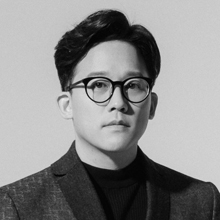 Chris LEE
CAO, SM Entertainment│Director, Kreation Music Rights
Chris LEE
CAO, SM Entertainment│Director, Kreation Music Rights
-
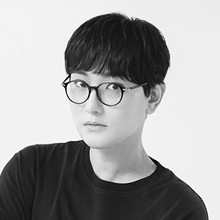 KANGTA
Creative Director, SM Entertainment│SmashHit(CIC) Chief Director, Kreation Music Rights
KANGTA
Creative Director, SM Entertainment│SmashHit(CIC) Chief Director, Kreation Music Rights
-
 KIM Young-wook [Moderator]
Producer, SBS Prism Studio │ Produced ' Legendary stage archive K, Fantastic Duo, Inkigayo, Kim Jung Eun’s Chocolate etc
KIM Young-wook [Moderator]
Producer, SBS Prism Studio │ Produced ' Legendary stage archive K, Fantastic Duo, Inkigayo, Kim Jung Eun’s Chocolate etc
Closing SDF2025
Closing Video




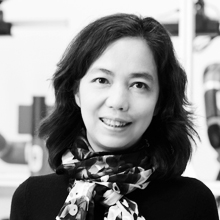
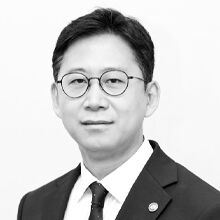
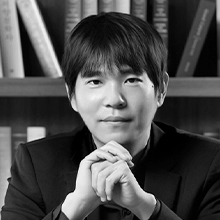
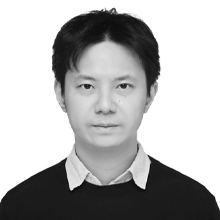

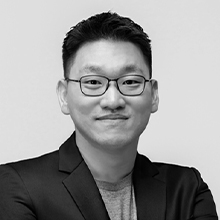
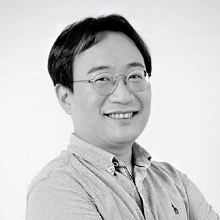
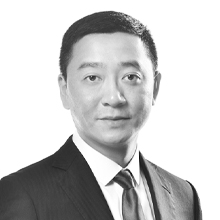
 Fragmentation of the World Order and the Drawing of New Boundaries
Fragmentation of the World Order and the Drawing of New Boundaries
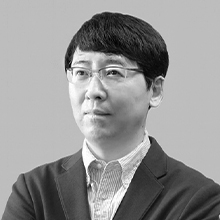
 Government Competitiveness in Korea: What Are the Issues?
Government Competitiveness in Korea: What Are the Issues?

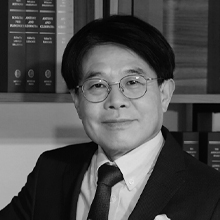

 The Competitiveness of the Greater Seoul Metropolitan Area Is the Competitiveness of Korea
The Competitiveness of the Greater Seoul Metropolitan Area Is the Competitiveness of Korea
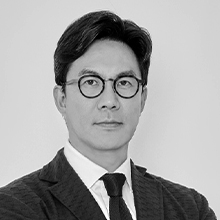

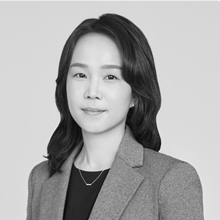
 The Future of K-Corporate Governance: Driving a Sustainable and Advanced Korea
The Future of K-Corporate Governance: Driving a Sustainable and Advanced Korea




